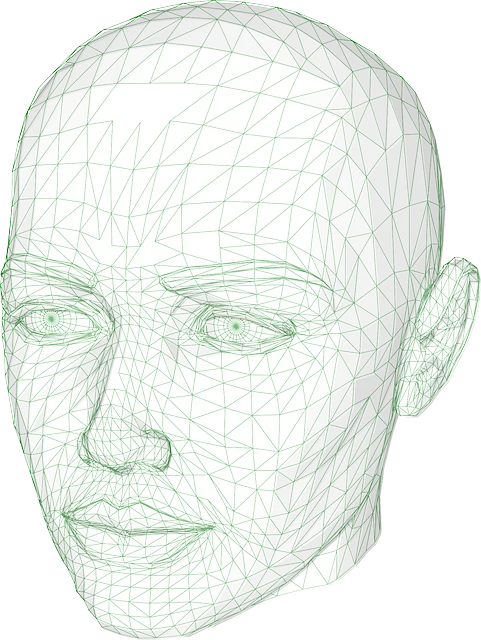Muscle soreness from physical exertion or injury can significantly affect daily life and health. Individuals with ADHD, who often engage in high levels of activity and fidgeting, may find it particularly challenging to manage this discomfort. Kratom, derived from Mitragyna speciosa leaves, has been explored for its potential pain-relieving properties, particularly for muscle soreness. Its active alkaloids, like mitraphylline and 7-hydroxymitragynine, might interact with opioid receptors to alleviate pain. For those with ADHD, kratom for ADHD could offer a dual benefit by not only easing muscle pain but also potentially enhancing focus and reducing anxiety. However, it's crucial to approach its use with caution due to the need for further research on its efficacy and safety. Consultation with healthcare providers is essential before using kratom, especially when managing chronic conditions or taking other medications. Kratom for ADHD is a topic of interest for those seeking natural alternatives to traditional pain relief and cognitive enhancers, but it's important to understand the complexities and potential risks involved. As research continues, the legal status of kratom varies by region, adding another layer of consideration for individuals exploring this option.
Muscle soreness, a common consequence of intense physical activity or injury, can significantly hinder daily functionality and overall well-being. Exploring effective relief strategies is crucial for maintaining an active lifestyle and managing chronic discomfort. This article delves into the potential of kratom supplements as a natural approach to alleviate muscle soreness, with a particular focus on their role in ADHD management. Kratom for ADHD may offer dual benefits: not only could it provide relief from persistent muscular pains but also enhance focus and concentration. As we navigate the science behind kratom’s effects, readers will gain insights into how this botanical remedy might serve as a versatile solution for both muscle soreness and attention deficit hyperactivity disorder (ADHD).
- Understanding Muscle Soreness and its Impact on Daily Life
- The Role of Kratom Supplements in Mitigating Muscle Soreness
- Integrating Kratom for ADHD Management: Relief from Muscle Soreness and Improved Focus
Understanding Muscle Soreness and its Impact on Daily Life

Muscle soreness, often a result of physical exertion or injury, can significantly affect one’s daily activities and overall well-being. It is characterized by discomfort or pain in the muscle tissue that may arise from intense exercise, overuse, or trauma. This condition can lead to reduced mobility, impaired performance in daily tasks, and a diminished quality of life for those experiencing it. For individuals with attention deficit hyperactivity disorder (ADHD), managing muscle soreness can be particularly challenging due to the physical demands often associated with ADHD coping mechanisms, such as high levels of physical activity or fidgeting.
Kratom, a supplement derived from the leaves of Mitragyna speciosa, has garnered attention for its potential effects on pain management and mood regulation. Specifically, kratom contains alkaloids like mitraphylline and 7-hydroxymitragynine, which are believed to interact with opioid receptors in the brain, potentially offering relief from muscle soreness. For those with ADHD who engage in activities that might lead to muscle fatigue or strain, kratom for ADHD may serve as a multifaceted solution by not only alleviating pain but also possibly enhancing focus and reducing anxiety, which are common challenges for individuals with the disorder. It’s important to approach the use of kratom with caution, considering its potential benefits and the necessity for further research to fully understand its effects and safety profile. Users should consult healthcare professionals before incorporating kratom into their regimen, especially those managing chronic conditions or taking other medications.
The Role of Kratom Supplements in Mitigating Muscle Soreness

Kratom supplements have garnered attention in various circles, including those exploring alternative methods for managing muscle soreness, particularly in individuals with Attention Deficit Hyperactivity Disorder (ADHD). The mitigation of muscle soreness is a multifaceted challenge that can benefit from the unique properties of kratom. Alkaloids found within kratom leaves, such as mitragynine and 7-hydroxymitragynine, are believed to interact with opioid receptors in the brain, potentially providing analgesic effects that could alleviate muscle pain and discomfort associated with physical exertion. For individuals with ADHD who often engage in high-intensity activities or exercise to manage symptoms, kratom may offer a natural alternative to traditional pain relief options. Its stimulant properties can also help enhance focus and concentration, which is crucial for tasks that require sustained attention. However, it’s important to approach the use of kratom with caution; while anecdotal evidence suggests its efficacy in soreness relief, further research is necessary to fully understand its mechanisms and potential side effects. Users should consult healthcare professionals before integrating kratom into their wellness regimen, especially considering the nuanced relationship between ADHD and pain management.
Integrating Kratom for ADHD Management: Relief from Muscle Soreness and Improved Focus

Integrating Kratom into ADHD management may offer a multifaceted approach to both muscle soreness relief and improved focus for individuals with Attention Deficit Hyperactivity Disorder (ADHD). Kratom, derived from the leaves of the Mitragyna speciosa tree, contains alkaloids that interact with the brain’s receptors, potentially providing benefits for those with ADHD. For instance, certain strains of kratom are reported to enhance concentration and cognitive function by stimulating the central nervous system, which can be particularly advantageous for individuals who struggle with maintaining focus due to ADHD. Additionally, kratom’s analgesic properties can help alleviate muscle soreness, a common issue among people with ADHD, as they often engage in high-energy activities that can lead to physical strain. Users may experience relief from pain without the side effects commonly associated with traditional pain medication. It is crucial for individuals to consult healthcare providers before integrating kratom into their regimen, as dosage and strain selection are key factors in achieving the desired outcomes for both muscle soreness relief and ADHD management. Safety and efficacy can vary based on these parameters, and professional guidance ensures a tailored approach that respects each person’s unique needs and circumstances. Kratom for ADHD remains a topic of ongoing research, with preliminary findings suggesting potential benefits; however, the scientific community continues to explore its role in managing symptoms associated with the condition. Users should be aware of the legal status of kratom in their jurisdiction, as it varies across different regions and may be subject to regulation or restriction.
muscle soreness can significantly impede daily functioning, particularly for those with active lifestyles or conditions like ADHD that necessitate a higher level of physical activity. Kratom supplements have emerged as a promising adjunct therapy for managing both muscle soreness and symptoms of ADHD. Research indicates that kratom’s alkaloids may offer pain relief and enhance focus, making it a versatile option for individuals seeking alternative methods to mitigate discomfort without compromising their attentional capabilities. By incorporating kratom responsibly into one’s routine, individuals can potentially alleviate muscle soreness while supporting better concentration, thus improving overall quality of life. As with any supplement, it is crucial to consult with a healthcare provider before use to ensure safe and effective integration into an existing treatment plan for both muscle soreness relief and ADHD management.






